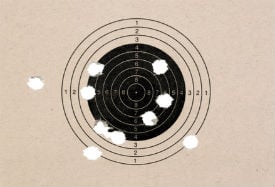 In addition to website blocking which is running rampant across dozens of countries right now, targeting the domains of pirate sites is considered to be a somewhat effective anti-piracy tool.
In addition to website blocking which is running rampant across dozens of countries right now, targeting the domains of pirate sites is considered to be a somewhat effective anti-piracy tool.
The vast majority of websites are found using a recognizable name so when they become inaccessible, site operators have to work quickly to get the message out to fans. That can mean losing visitors, at least in the short term, and also contributes to the rise of copy-cat sites that may not have users’ best interests at heart.
Nevertheless, crime-fighting has always been about disrupting the ability of the enemy to do business so with this in mind, authorities in India began taking advice from the UK’s Police Intellectual Property Crime Unit (PIPCU) a couple of years ago.
After studying the model developed by PIPCU, India formed its Digital Crime Unit (DCU), which follows a multi-stage plan.
Initially, pirate sites and their partners are told to cease-and-desist. Next, complaints are filed with advertisers, who are asked to stop funding site activities. Service providers and domain registrars also receive a written complaint from the DCU, asking them to suspend services to the sites in question.
Last July, the DCU earmarked around 9,000 sites where pirated content was being made available. From there, 1,300 were placed on a shortlist for targeted action. Precisely how many have been contacted thus far is unclear but authorities are now reporting success.
According to local reports, the Maharashtra government’s Digital Crime Unit has managed to have 11 pirate site domains suspended following complaints from players in the entertainment industry.
As is often the case (and to avoid them receiving even more attention) the sites in question aren’t being named but according to Brijesh Singh, special Inspector General of Police in Maharashtra, the sites had a significant number of visitors.
Their domain registrars were sent a notice under Section 149 of the Code Of Criminal Procedure, which grants police the power to take preventative action when a crime is suspected. It’s yet to be confirmed officially but it seems likely that pirate sites utilizing local registrars were targeted by the authorities.
“Responding to our notice, the domain names of all these websites, that had a collective viewership of over 80 million, were suspended,” Singh said.
Laxman Kamble, a police inspector attached to the state government’s Cyber Cell, said the pilot project was launched after the government received complaints from Viacom and Star but back in January there were reports that the MPAA had also become involved.
Using the model pioneered by London’s PIPCU, 19 parameters were applied to list of pirate sites in order to place them on the shortlist. They are reported to include the type of content being uploaded, downloaded, and the number of downloads overall.
Kamble reports that a further 89 websites, that have domains registered abroad but are very popular in India, are now being targeted. Whether overseas registrars will prove as compliant will remain to be seen. After booking initial success, even PIPCU itself experienced problems keeping up the momentum with registrars.
In 2014, information obtained by TorrentFreak following a Freedom of Information request revealed that only five out of 70 domain registrars had complied with police requests to suspend domains.
A year later, PIPCU confirmed that suspending pirate domain names was no longer a priority for them after ICANN ruled that registrars don’t have to suspend domain names without a valid court order.





